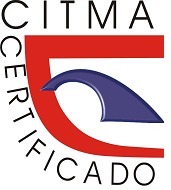Planned organizational change based on information technology for digital transformation
Keywords:
Planned Organizational Change, Information Technology, Digital TransformationAbstract
Business needs motivate the progress of Information and Communication Technologies, which automate the Information Systems necessary for the operation of the organization and which, in turn, allow a better representation of business models; imposing new challenges to management and business performance. Periodically, the development and nature of the capabilities achieved enable paradigm changes and/or redefinitions in the sources of value, in management and/or performance modes, beginning a new iteration of the evolutionary process. The iteration at the moment is outlined as Digital Transformation, however, it is necessary to develop the necessary skills and milestones in organizations to aspire to it. The objective of this work is to present an approach to Planned Organizational Change based on Information Technology or COPTI as a facilitating instrument to achieve Digital Transformation. As a result of the analysis, COPTI capacities have been identified, and competences that are formed during its application, which contribute to Digital Transformation.
References
Bustamante Molina, V. (2021). Trabajo a distancia y Teletrabajo: Imperativos en la nueva normalidad. Periódico Trabajadores. Retrieved 23/04/2021, from www.trabajadores.cu/20210323/trabajo-a-distancia-y-teletrabajo-imperativos-en-la-nueva-normalidad/
Chávez López, J. K., & Morales Rodríguez, M. (2016). Competencias en tecnologías de información y comunicacion en estudiantes de preparatorias públicas del Estado de Michoacán. Revista Iberoamericana de Contaduría, Economía y Administración,, 5(10 Julio - Diciembre).
Christopher, M. (2011). Logistics and supply chain management: creating value-adding networks (4th ed.). Harlow, England: Financial Times Prentice Hall.
Delgado Fernández, T. (2020). Taxonomía de Transformación Digital. Revista Cubana de Transformación Digital,, 1(1 enero-abril), 04-23.
Hernández Lantigua, D., Pérez Armayor, D., León Alen, E. O., Infante Abreu, M. B., & Blanco González, J. (2016). Propuesta de Proceso de Planificación de Sistemas de Información para la industria bio-farmacéutica cubana. Revista Cubana de Información en Ciencias de la Salud, 27(2 Abril-Junio).
Kushniruk, A. W., & Borycki, E. M. (2008). Human, Social, and Organizational Aspects of Health Information Systems: IGI Global.
Meneses, Y. P. (2019). El encadenamiento productivo es básico para el desarrollo de la economía. Asistió el Presidente Miguel Díaz-Canel Bermudez al balance anual de trabajo del Ministerio de Industrias. Granma,
ONU. (2015). Agenda para el desarrollo sostenible [Electronic Version], from https://www.un.org/
PCC. (2017). Lineamientos de la Política Económica y Social del Partido y la Revolución para el Período 2016-2021. Retrieved. from http://www.granma.cu/file/pdf/gaceta/%C3%BAltimo%20PDF%2032.pdf.
Pérez Armayor, D. (2014). Technology combinations decision model for supply chains information systems integration. Oldenburg, Germany: Shaker Verlag.
Pérez Armayor, D., Abreu Fong, P. A., Infante Abreu, M. B., Arencibia Álvarez, N., Ortega González, Y. C., Hernández Lantigua, D., et al. (2017). Efectos del cambio organizacional planificado basado en tecnologías de la información: estudio de caso de Biocubafarma. Revista Cubana de Información en Ciencias de la Salud,, 28(3).
Pérez Armayor, D., Hernández Lantigua, D., León Alen, E. O., Infante Abreu, M. B., Abreu Fong, P. A., Ortega González, Y. C., et al. (2017). Cuatro Etapas de Cambio Organizacional Planificado basado en Tecnologías de la Información. Revista Cubana de Información en Ciencias de la Salud., 28(3).
Redacción de Corresponsales. (3 de marzo de 2021). Avanza estudio sobre teletrabajo y trabajo a distancia en Cuba. Los resultados tributarán a la elaboración de un reglamento por parte del Ministerio de Trabajo y Seguridad Social (MTSS) para el desarrollo más efectivo de esas modalidades Granma. Retrieved 23/04/2021, from http://www.granma.cu/cuba/2021-03-03/en-fase-avanzada-estudio-sobre-teletrabajo-y-trabajo-a-distancia-en-cuba-03-03-2021-13-03-16
Redacción Digital. (2021, febrero 19). Promueve Cuba implementar trabajo a distancia permanentemente. Trabajadores. Retrieved 23/04/2021, from http://www.trabajadores.cu/20210219/promueve-cuba-implementacion-del-trabajo-a-distancia-de-manera-permanente/
Redacción Digital. (2021, marzo 4). Determinan competencias laborales claves para el trabajo a distancia en Cuba. Trabajadores. Retrieved 23/04/2021, from http://www.trabajadores.cu/20210304/determinan-competencias-laborales-claves-para-el-trabajo-a-distancia-en-cuba/
Rushton, A., Croucher, P., & Baker, P. (2006 ). The Handbook of Logistics and Distribution Management (3 ed.). London: Kogan Page.
Downloads
Published
How to Cite
Issue
Section
License
Copyright (c) 2021 Dania Pérez Armayor, Yadary Cecilia Ortega González, Mónica González Venegas

This work is licensed under a Creative Commons Attribution-NonCommercial 4.0 International License.













